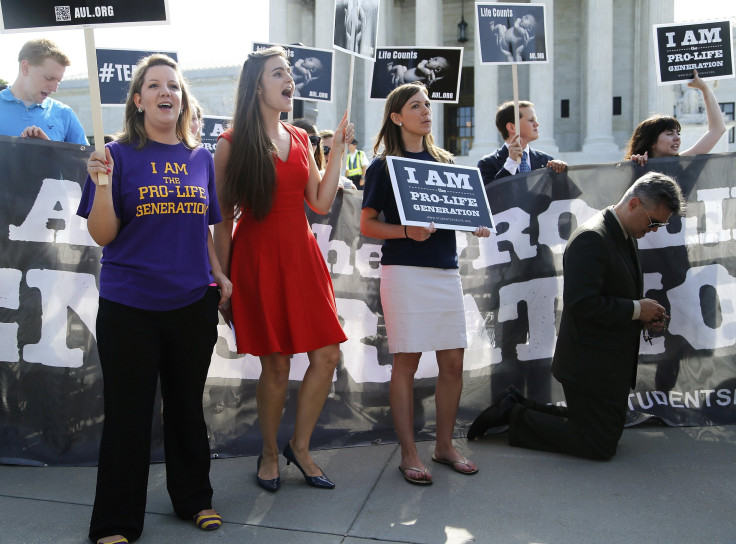Texas Anti-Abortion Law Upheld By Appeals Court; Clinics Will Be Greatly Reduced

A federal appellate court upheld an anti-abortion law in Texas that would radically reduce the number of facilities that can provide abortions in the state Tuesday. A three-judge panel on the 5th U.S. Circuit Court of Appeals, one of the most conservative courts in the country, according to the Associated Press, ruled that Texas can require clinics to meet the difficult-to-implement and costly standards of hospital-grade surgical centers required by Texas House Bill 2.
After the initial lawsuit, which was filed by the Center for Reproductive Rights on behalf of several abortion providers, the U.S. Supreme Court temporarily blocked the implementation of the law until it had been decided on in the New Orleans-based appeals court. Proponents of the law, including Republican Texas Gov. Greg Abbott, say that the law will ensure and protect women's health, according to the Associated Press. But critics argue the standards, which include minimum sizes for rooms and doorways, pipelines for anesthesia and other infrastructure, serve as a measure to get rid of abortion clinics, since many cannot afford to make the necessary upgrades, according to the Texas Tribune.
"Once again, women across the state of Texas face the near-total elimination of safe and legal options for ending a pregnancy and the denial of their constitutional rights," said Nancy Northup, president and CEO of the Center for Reproductive Rights, to the Texas Tribune.
Texas, the second largest state in the nation, currently has about 17 abortion providers, down from 40 in 2012, the Associated Press reported. While the 5th Circuit provided an exemption to the law for a clinic in McAllen, they refused an exemption for the facility in El Paso. The closest clinic in Texas for women in El Paso will require a round trip to San Antonio-- a length of approximately 1,100 miles -- according to the Associated Press.
"Not since before Roe v. Wade [in 1973] has a law or court decision had the potential to devastate access to reproductive health care on such a sweeping scale," Northrup told the Guardian. Many expect reproductive rights activists to continue to pursue the legal battle over the Texas law further.
© Copyright IBTimes 2024. All rights reserved.












